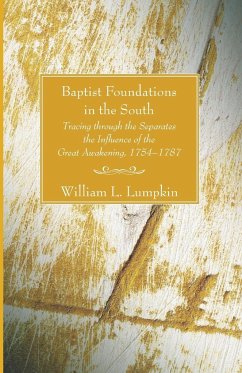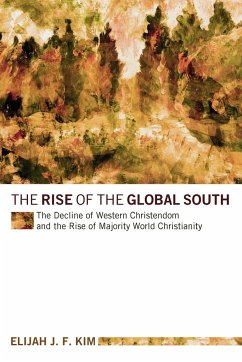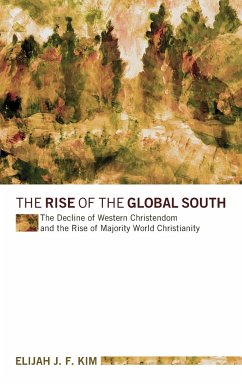Who were the Separates? Where did they originate? What did they believe? What part did they play in the Great Awakening of religious fervor in the South? What effect did they have on the history and heritage of Southern Baptists? Any evaluation of the genius and growth of Southern Baptists is impossible without recognition of the tremendous influence of a handful of rugged, single-minded, enthusiastic colonists from Connecticut who, for their ""irregularity, were known as ""Separate Baptists. They settled at Sandy Creek in central North Carolina in 1755 and immediately introduced the phenomenon of revival to the southern frontier. The life and history of the Separate Baptists have continued to leave their mark upon the subsequent story of the denomination and the nation. Yet, until now, it has been a phase of American church history that has never been adequately treated.
Hinweis: Dieser Artikel kann nur an eine deutsche Lieferadresse ausgeliefert werden.
Hinweis: Dieser Artikel kann nur an eine deutsche Lieferadresse ausgeliefert werden.








